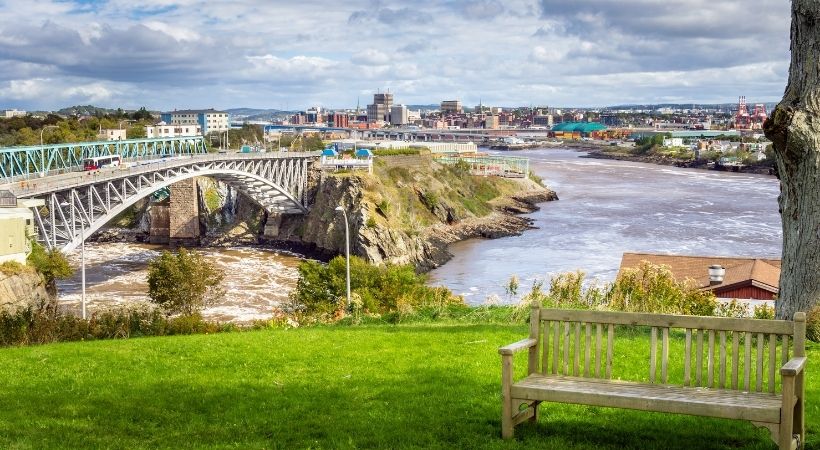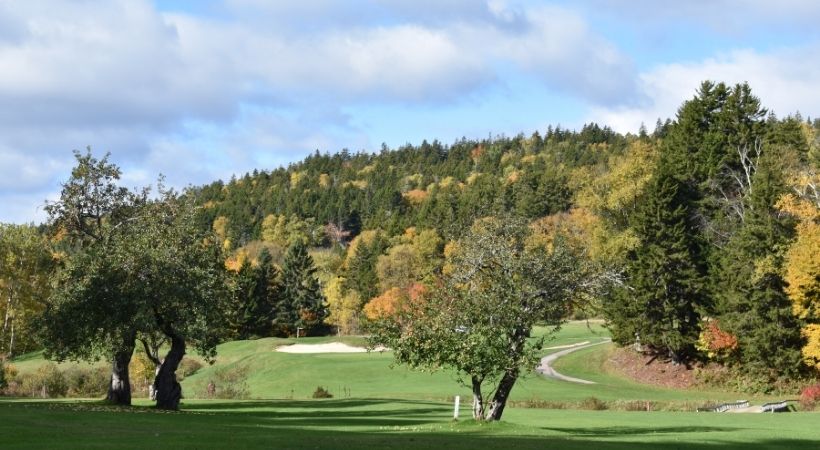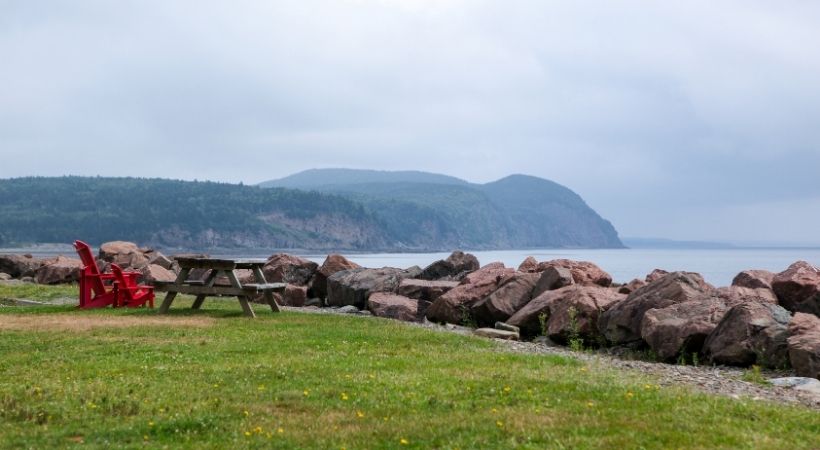New Brunswick PR Rules for International Students
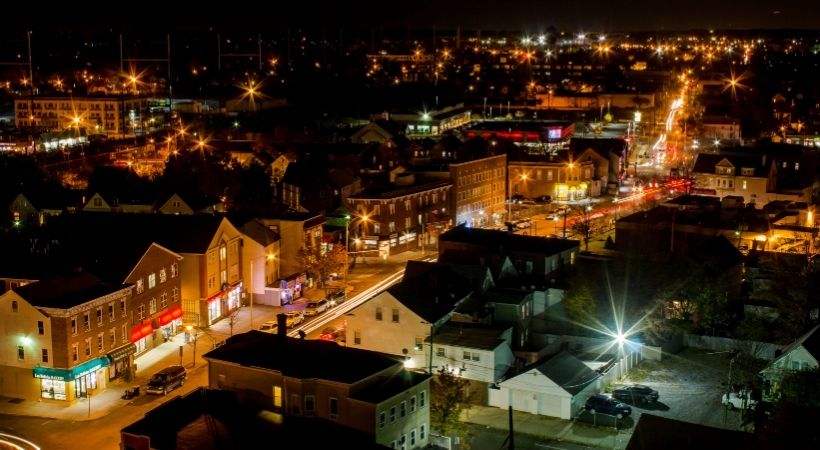
An application for a New Brunswick PR can be done through the New Brunswick Immigration Program Stream. Most international students can apply for PR in New Brunswick in any of the Five major streams. The New Brunswick Provincial Government wants to attract highly talented foreign workers and International students who would contribute to the province’s economy.
Let’s learn more about New Brunswick before we delve into the New Brunswick PR rules for international students.
New Brunswick at a glance:
New Brunswick, one of the four Atlantic provinces, is located on the east coast of Canada. This province has mostly forested uplands which makrsup about 85-90% of the total land area. As a result, this province has a harsher climate than the other Maritime Provinces. New Brunswick was one of the first places in North America explored and settled by early Europeans.
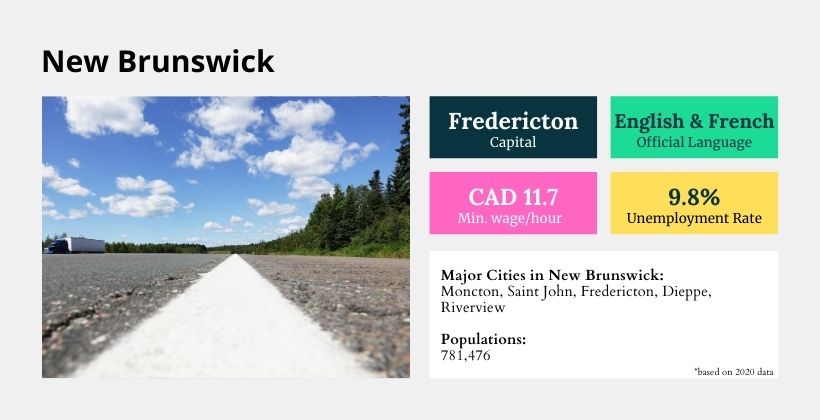
New Brunswick had been fought over by the French and the English. In 1755, the French were finally defeated. This forced more than 5,000 Acadians into exile. They settled along the remote northern shores. Due to the American Civil war, there was an influx of refugees in 1784. They then settled in the area and founded this province, which once was part of Nova Scotia. Glaciation made New Brunswick's soil both shallow and acidic which discouraged further settlements.
New Brunswick is the 11th largest (out of 13) province in Canada. It is bordered by Québec to the north, the Atlantic Ocean to the east, Nova Scotia and the Bay of Fundy to the south, and the US state of Maine to the west.
The provincial economy was once dominated by the shipbuilding, pulp, and paper industry. Currently, agricultural goods, livestock farming, forestry, mining, and the quarrying industry dominate its economy. Even though there are ample job opportunities in the forestry and agriculture sectors, the modern businesses of finance and insurance are springing up due to the majority of bilingual residents.
Cost of living for students:
Known as the hidden gem of Canada, New Brunswick offers students a relatively low cost of living. The estimated monthly expenses, for a single person, without rent, are $1145. A one bedroom apartment in the Fredericton area, costs around $810/month.
Student Scholarships in New Brunswick:
There aren’t many scholarships for international students planning to enroll at undergraduate, graduate, or Ph.D. level by the New Brunswick Provincial Government. However, there are many scholarships for domestic students. You can find more about the scholarships at:
Top Growing Industries in New Brunswick:
Cybersecurity
Financial Services & Fintech (Insurance industry grew by 66% from 2013-2017)
Business Service Centers
Food & Beverage
ICT
Geomatics
Ocean Tech
Digital Health
SaaD
Telecommunications
Advanced Manufacturing
Aerospace
Defense
Forestry
Mining
Marine
Oil & Gas industries
Energy Innovation
Source: Onbcanada.ca
Newly added jobs in New Brunswick’s Target Occupations:
Technology:
Information systems analysts and consultants
Computer network technician
Software engineers and designers
Database analysts and data administrator
Computer programmers and interactive media developers
Accounting and finance:
Accounting technicians and bookkeepers
Financial and investment analysts
Management:
Senior managers – financial, communications, and other business services
Restaurant and foodservice managers
Managers in health care
Retail sales supervisors
Others:
Administrative assistants
Executive assistants
Early childhood educators and assistants
Retail and wholesale buyers
Purchasing agents and officers
Human resources professionals
Translators, terminologists, and interpreters
Cooks
Source: Immigration.ca- New Brunswick
Interesting Facts About New Brunswick:
This province is considered as one of the oldest provinces in Canada. The aboriginal people of New Brunswick date back to more than 8000 B.C. This is 5000 years before the ancient Egyptian civilizations.
80% of New Brunswick is covered in Forest.
It is the only official bi-lingual province in Canada.
French explorer Jacques Cartier explored the province in 1532. He was the first European explorer in New Brunswick.
Established in 1785, the University of New Brunswick is one of the oldest English language universities in Canada.
New Brunswick is home to many original festivals: Campbellton’s Salmon Festival, Shediac’s Lobster Festival, Lamèque’s Peat Moss Festival and the always-popular Festival Acadien de Caraquet.
The capital, Fredericton, was named after King George III’s son Frederick.
The Bay of Fundy is home to the world's highest tides.
New Bunswick has the world’s largest lobster that weighs 90 tonnes or 198,416 pounds. Oh, did I say that this lobster is a statue?
Moncton is home to Magnetic Hill.
Top Universities in New Brunswick:
| Name | Town |
|---|---|
| University of New Brunswick | Fredericton |
| Mount Allison University | Sackville |
| Universite de Moncton | Moncton |
| Yorkville University | Fredericton |
| St. Thomas University | Fredericton |
| Crandall University | Moncton |
| Kingswood University | Sussex |
| St. Stephen’s University | St. Stephen |
Cheapest Universities or Colleges in New Brunswick for International Students:
University of New Brunswick
New Brunswick Community College
Mount Allison University
Mckenzie College
Yorkville University Business Administration
Maritime College of Forest Technology
New Brunswick College of Craft and Design
Universite de Moncton
St. Thomas University
Source: Gnb.ca
New Brunswick PR rules:
The New Brunswick PR rules vary from category to category. New Brunswick's Immigration program streams are your pathways for PR. These streams are an opportunity for the provincial government to attract foreign workers who have the skills, education, and work experience necessary to contribute to their economy. There are five streams that you can apply to:
NB Skilled Worker Stream
NB Express Entry Stream
NB Business Immigration Stream
NB Strategic Initiative Stream
Atlantic Immigration Pilot Project
1. New Brunswick Skilled Worker stream
Candidates planning to apply to this stream need to have a genuine job offer from a New Brunswick employer with a competitive salary and have the full intent to permanently live and work in the province. This stream enables foreign workers with the necessary skills, education, and work experience to contribute to the New Brunswick economy.
You can read more about the eligibility requirements from this 31-page official document.
2. New Brunswick Express Entry stream
This stream is for foreign nationals with the necessary education, skills and work experience who wish to work and settle in New Brunswick. A potential applicant must be living in New Brunswick and is either:
Working for a New Brunswick employer:
Submit a letter of employment from your employer
The applicant must have a valid Canadian Work Permit.
The NOC Code for current employment is for a position that matches NOC Level 0, A, or B: NOC Code must be provided
Demonstrate language skills with either IELTS, CELPIP, TEF Canada, TCF. You need to score at least CLB 7's equivalent in all four language competencies, in either French or English.
Your degree must be equivalent to aCanadian high school diploma and you must have a valid Educational Credential Assessment (ECA).
Or enrolled in a New Brunswick publicly-funded post-secondary institution:
The applicant must reside in New Brunswick.
Must have a valid Canadian Study Permit and needs to submit proof of enrolment.
The applicant must have a minimum of one year of previous work experience in a position that matches NOC Level 0, A, or B: NOC Code, and employment letters must be provided.
Demonstrate language skills with either IELTS, CELPIP, TEF Canada, TCF. You need to score at least CLB 7's equivalent in all four language competencies, in either French or English.
Your degree must be equivalent to a Canadianhigh school diploma and have a valid Educational Credential Assessment (ECA).
At the time of your application, you need to meet Federal and Provincial Express Entry eligibility. You also need to meet the following:
Have attended publicly funded institution located in New Brunswick.
The minimum duration of your study must have been one year.
You can apply without a job offer.
You can read more Q & A here.
3. New Brunswick Business Immigration stream
NB Business Immigration Stream is for experienced entrepreneurs looking to establish, operate and actively manage a business and wanting to settle in NB. Applicants interested in applying in this stream have to fulfill age, language, personal net worth, funds to invest, business ownership/management experience and a business proposition.
4. New Brunswick Strategic Initiative stream :
This stream is specifically for French-speaking workers with skills, education and work experience to contribute to the New Brunswick economy and who are planning to settle in New Brunswick.
5. Atlantic Immigration Pilot Project (AIPP):
AIPP was initially developed for New Brunswick employers to hire foreign workers and recent international graduates who want to settle in New Brunswick. This program is solely for designated employers, to recruit and hire workers with the necessary skills, experience and education. [Currently, the province is not accepting any applications for occupations in the Accommodation and Food Service Sectors]
Helpful Websites to know more about New Brunswick and its Immigration Processes:
Beautiful New Brunswick
Navigation
# Why Canada? # Education System # Student Budget # Student permit/visa # Spousal Visa # After landing # Student Housing # Complete Checklist # Driving License # Study and Work # All Provinces in Canada # PR in Alberta # PR in British Columbia # PR in Manitoba # PR in New Brunswick # PR in NL # PR in Nova Scotia # PR in Ontario # PR in PEI # PR in Québec # PR in Saskatchewan # Cheap Universities # Cheapest Colleges # Alberta DLI # British Columbia DLI # Manitoba DLI # New Brunswick DLI # NL DLI # Nova Scotia DLI # Ontario DLI # PEI DLI # Quebec DLI # Saskatchewan DLI # Part-time jobs # Scholarships in Canada # Survive Winter

Cover Letter

Forwarding Letter

Student Financial Planning

Explanation Letter of Source of Fund

Explanation on previous Visa Rejection

